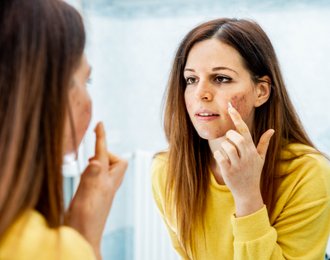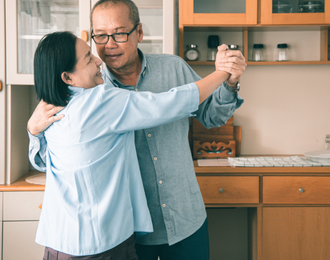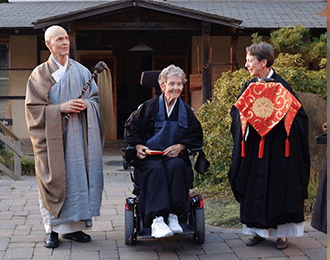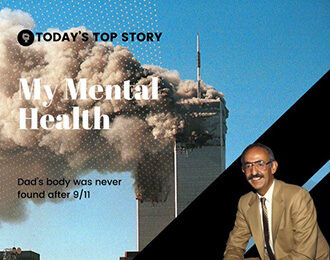Woman Who Got Dishwashing Job at Husband’s Nursing Home Says ‘I Couldn’t Let COVID Keep Us Apart’
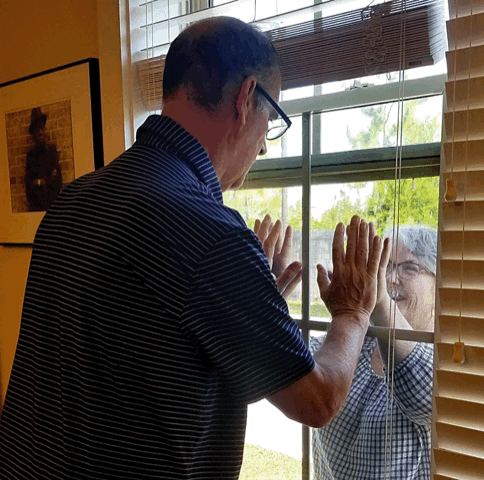
People June 2021
Author: Julie Mazziotta
Like most people, Mary Daniel’s daily schedule looks a bit different during the COVID-19 pandemic.
She still does her usual day job running a medical billing and patient advocacy business, but two nights a week, she heads to Rosecastle at Deerwood, an assisted living facility, to clock in as a part-time dishwasher — all so she can continue seeing her husband of 24 years, Steve, who has Alzheimer’s disease.
Steve, 66, has lived in the facility since July 2019 after he struggled with the disease at home.
“He was locked in and he was exit-seeking. Literally we had to put deadbolts on the door. Because he would try to open it and flee,” Mary, 57, tells PEOPLE in this week’s issue.
So, after six years of caring for him at home, she made the difficult decision to send him to Rosecastle. Thankfully, Steve thrived, quickly becoming known to his fellow residents as “the mayor,” because he would sit by the entrance and give everyone — including the FedEx guy — a hug when they came in.
But in March, when the COVID-19 pandemic struck and nursing homes closed to visitors, Mary was suddenly restricted from seeing Steve. She understood why, but worried about her husband and other dementia patients who need social interaction to thrive.
“They don’t have anything else but that connection with people,” Mary says. “If they are not touching or hugging or around people to stimulate their brain, it dies at a much quicker pace than what the actual disease would do.”
The closure meant that Mary could no longer tuck Steve into bed, as she would do most nights, give him hugs or even hold his hand. Desperate for a way to see him, she reached out to Mary Raddant, the chief human resources officer at Rosecastle, in search of a solution.
Mary “was willing to come in at any level,” Raddant says, and jumped at the chance to work as a dishwasher when she heard they had an opening.
“We knew the connection with her husband was strong and we really wanted to play a part in bringing them back together again,” Raddant says. “This has really been a win-win.”
After safety and food-handling training, a background check and classes, Mary now comes in to Rosecastle at 5 p.m., does the dishes, cleans the kitchen and sets up for the morning’s breakfast shift before going to see Steve.
“The first day I knocked on the door of his room and he said ‘Mary!’ We hugged. We both cried. He knew me. I got to him in time,” she says. “That is an incredible blessing.”
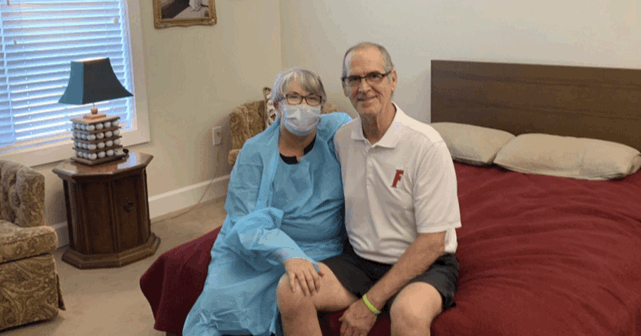
Her hope now is to help the thousands of family members and care facility patients across the country safely reunite during the pandemic. Mary started a Facebook group, Caregivers for Compromise, to “join forces as a common voice for our loved ones.” She is also lobbying states to allow an Essential Family Caregiver designation, which allows one family member to visit their loved one at least weekly after getting tested for COVID-19, and is already in place in Indiana and Minnesota.
“Mine is a happy story. I cannot tell you the blessing it is just to hug him. But it’s also not a happy story,” she says. “Because out there, there are literally hundreds of thousands of very painful, sad and increasingly hopeless stories. What about all the people who cannot do what I was able to do? There has to be a plan in place that will allow people to get back to their loved ones.”
Mary hopes to meet with Florida Gov. Ron DeSantis to “give him some suggestions” on ways to help patients see their loved ones while still staying safe — with or without a dishwashing job.
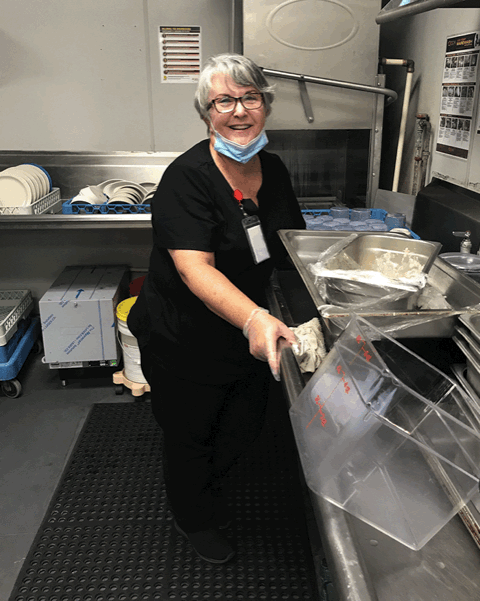
“There is just a peace that comes from knowing I need to be with him and I am,” she says. “I want to bring that to other people.”
